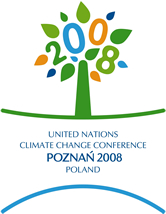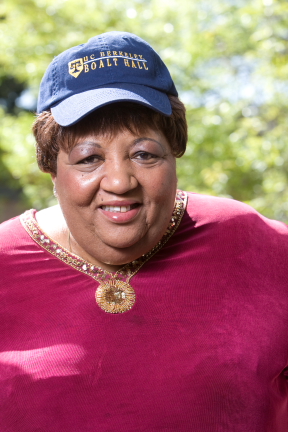
By Michael Bazeley
Berkeley Law Lecturer in Residence Cymie Payne is among thousands of delegates from around the world who descended on Poznań, Poland last week to create the framework for an international treaty on climate change.
Payne, associate director of the law school’s California Center for Environmental Law and Policy, called the latest United Nations Climate Change Conference a “crucial interim step toward an international climate agreement.” She’s filing dispatches from the conference on a blog.
“The goal of the meeting is to move the nearly 190 nations that are participating from discussion mode to serious negotiations,” Payne said from Poland. She added that the hope is to have binding commitments by the end of next year to reduce emissions, prepare for climate change, transfer emission-reducing technology to developing countries, and transfer funds to developing countries for mitigation and adaptation.
“After twelve months of talking, it’s time to start writing,” Payne wrote on the blog.
The delegates in Poznań—there are about 10,000—are working toward a new climate treaty to replace the 1997 Kyoto Protocol. That agreement, which the U.S. declined to sign, requires that 37 countries slash emissions of heat-trapping gases by an average 5 percent from 1990 levels. It expires in 2012. The goal is for the new treaty to be finalized at the next U.N. climate meeting in December 2009 in Copenhagen, Denmark.
Payne is director of the law school’s Global Commons Project, which is designed to develop the influence of environmental law on global policy. She came to Berkeley Law two years ago after six years at the U.N. Compensation Commission, where she led a team of lawyers and experts assessing claims of damage to the environment and public health from the Persian Gulf conflict.
Payne attended the last U.N. climate change conference in Bali one year ago. That conference hammered out a roadmap that is guiding the climate change talks through next year.
Payne noted a “tremendous shift” in the discussions at this year’s conference from trying to reduce greenhouse gas emissions to adapting to current and inevitable climate change effects. There have been “very serious meetings,” she said, focused on analysis and projections of climate change, groups that will be affected, the use of disaster insurance to spread the financial risk, and migration.

She noted that forced migration raises “a host of legal issues.”
The conference runs through December 12, concluding with the arrival of premiers, presidents and U.N. Secretary General Ban Ki-Boon.